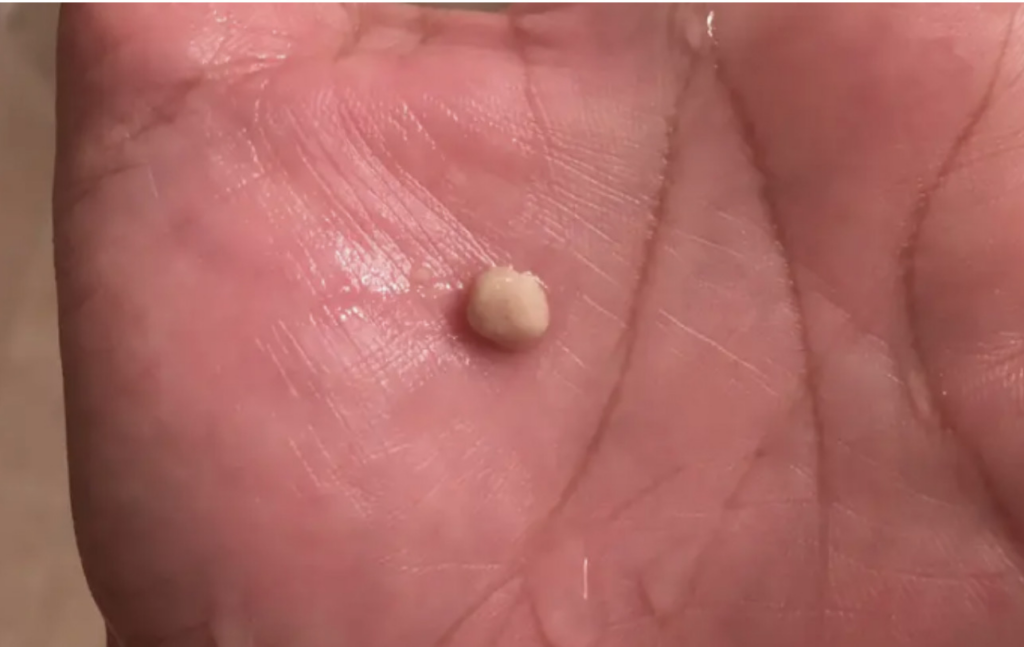Tonsil Stones: The Hidden Culprits Behind Bad Breath and Throat Discomfort
Have you ever noticed a strange, gritty sensation at the back of your throat, or a persistent bad odor that brushing and mouthwash just can’t seem to fix? For many, these minor annoyances are dismissed as routine oral issues.
But sometimes, they signal a hidden problem quietly developing in your tonsils—tonsil stones. While small and often harmless, these calcified deposits can lead to discomfort, bad breath, and, in some cases, recurring infections if left unaddressed.
What Are Tonsil Stones?
Tonsil stones, medically known as tonsilloliths, are small, whitish or yellowish formations that develop in the crevices, or crypts, of your tonsils. They form when trapped food particles, dead cells, and bacteria accumulate and harden over time. Most frequently observed in children and young adults, tonsil stones can also appear in older adults.
While they are generally not dangerous, they can be uncomfortable and socially bothersome due to their strong, often unpleasant odor. The severity varies—some people may never notice their tonsil stones, while others experience noticeable symptoms.
Symptoms to Watch For
Small tonsil stones may go completely unnoticed, but larger stones or multiple deposits can cause:
Persistent bad breath (halitosis) that doesn’t improve with brushing
Sore throat or difficulty swallowing
Metallic or unusual taste in the mouth
Swollen or irritated tonsils
Ear discomfort or pressure due to shared nerve pathways
Ongoing coughing
Recurrent tonsil infections
If any of these symptoms persist, it’s important to consult a healthcare professional for evaluation.
How Tonsil Stones Are Diagnosed

Tonsil stones are usually identified through a physical examination of the throat. In some cases, your doctor may review your medical history or recommend additional tests, such as imaging studies or throat cultures, to rule out other conditions that could cause similar symptoms.
Treatment Options
Not all tonsil stones require treatment. Some may fall out naturally without intervention. However, if they cause discomfort, bad breath, or repeated infections, treatment options include:
Self-removal: Gently dislodge stones at home using a cotton swab or by gargling with salt water. Avoid sharp objects to prevent injury.

Medicated gargles: Antimicrobial mouthwashes can help reduce bacterial buildup and prevent new stones.
Oral irrigators: Special devices designed to flush debris from tonsil crypts.
Surgical removal: In severe or recurrent cases, a tonsillectomy may be recommended to permanently remove the tonsils.
Home Remedies for Mild Cases
If your tonsil stones are small and not causing major issues, some home remedies may provide relief:
Saltwater gargles: Mix one teaspoon of salt in warm water to reduce inflammation and loosen stones.
Apple cider vinegar: Diluted as a gargle, it may help balance oral pH and curb bacterial growth.

Hydration: Drinking plenty of water helps prevent dry mouth and reduces the risk of stone formation.
Oral hygiene: Regular brushing, flossing, tongue cleaning, and mouthwash use can minimize bacterial buildup.
It’s important to note that home remedies may provide temporary relief but may not fully eliminate tonsil stones, especially larger or more persistent ones.
Preventing Tonsil Stones
While complete prevention may not be possible, these steps can significantly reduce your risk:
Maintain consistent oral hygiene through brushing, flossing, and mouthwash.

Stay hydrated to prevent dry mouth.
Avoid tobacco and excessive alcohol, which can irritate tonsils.
Schedule regular dental checkups to detect early signs of tonsil stones.
Conclusion
Tonsil stones may be small, but they can cause noticeable discomfort and affect daily life. Fortunately, they are usually harmless and manageable with proper care. Awareness is key: recognizing early symptoms, practicing good oral hygiene, and seeking medical advice when necessary can prevent complications and minimize recurrence. By taking proactive steps, you can protect your throat, maintain fresh breath, and support overall oral health.
